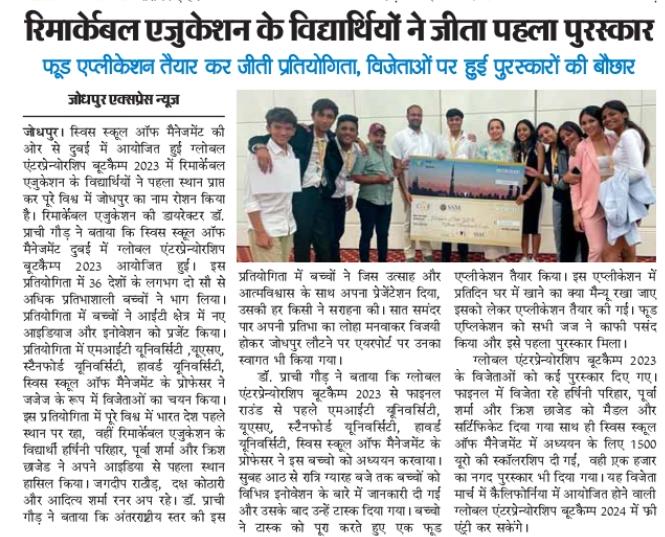
Food and Agriculture Science
Cultivating a Promising Career in Food and Agriculture Science: Education and Future Prospects
Introduction
In a world facing the challenges of a growing global population and environmental sustainability, the field of Food and Agriculture Science holds immense promise. This dynamic and multidisciplinary field not only addresses the vital need for sustenance but also plays a pivotal role in sustainable practices, technological innovations, and economic development. If you're passionate about food security, environmental conservation, and innovation, a career in Food and Agriculture Science could be the perfect fit. In this blog, we will explore how to embark on a journey in this field, what to study, and what the future scope looks like.
Educational Pathways
1. Bachelor's Degree:
To start a career in Food and Agriculture Science, you typically begin with a bachelor's degree. Several undergraduate programs cater to this field, such as Agricultural Science, Agribusiness, Food Science, and Environmental Science. It's crucial to choose a program that aligns with your specific interests within the field.
2. Specialized Master's Degrees:
After completing your bachelor's degree, you may opt for a master's program for further specialization. Programs like Master of Science in Agriculture, Food Security, or Sustainable Agriculture can deepen your knowledge and enhance your career prospects.
3. PhD Programs:
For those aspiring to become experts or researchers in the field, pursuing a PhD is an excellent choice. A Ph.D. program allows you to conduct in-depth research and make significant contributions to Food and Agriculture Science.
Key Areas of Study
In Food and Agriculture Science, your education will encompass a wide range of subjects to prepare you for the multifaceted challenges of the industry. Some key areas of study include:
- Crop Science: Understanding plant biology, genetics, and cultivation techniques to maximize crop yields and quality.
- Animal Science: Focusing on livestock management, genetics, and nutrition for sustainable animal production.
- Food Technology: Exploring the science behind food processing, preservation, and safety.
- Environmental Science: Learning how to balance agricultural practices with environmental conservation and sustainability.
- Agribusiness: Developing skills in business management, marketing, and economics within the agriculture sector.
- Sustainable Agriculture: Studying practices that promote long-term environmental and economic sustainability.
Future Career Opportunities
The future outlook for careers in Food and Agriculture Science is bright, driven by several factors:
- Global Food Security: As the world population continues to grow, there's an increasing demand for sustainable food production and distribution.
- Environmental Sustainability: The need to minimize the environmental impact of agriculture has opened up opportunities for experts in sustainable farming practices.
- Technology and Innovation: Advancements in technology, such as precision agriculture and biotechnology, are transforming the industry, creating new career paths.
- Policy and Regulation: Governments worldwide are implementing regulations to ensure food safety and sustainability, creating opportunities in food policy and regulation.
- Research and Development: Ongoing research in genetics, biotechnology, and crop improvement offers exciting prospects for researchers.
- Agribusiness Management: The agriculture industry needs professionals skilled in managing businesses and supply chains efficiently.
Conclusion
A career in Food and Agriculture Science is not only personally rewarding but also contributes significantly to global well-being. With the right education and dedication, you can become an integral part of addressing food security challenges, promoting sustainability, and driving innovation in the field. The future of Food and Agriculture Science is promising, offering diverse and fulfilling career opportunities for those passionate about making a positive impact on our world's food systems. So, if you have a green thumb and a heart for sustainability, consider sowing the seeds of your future in this vital field.









